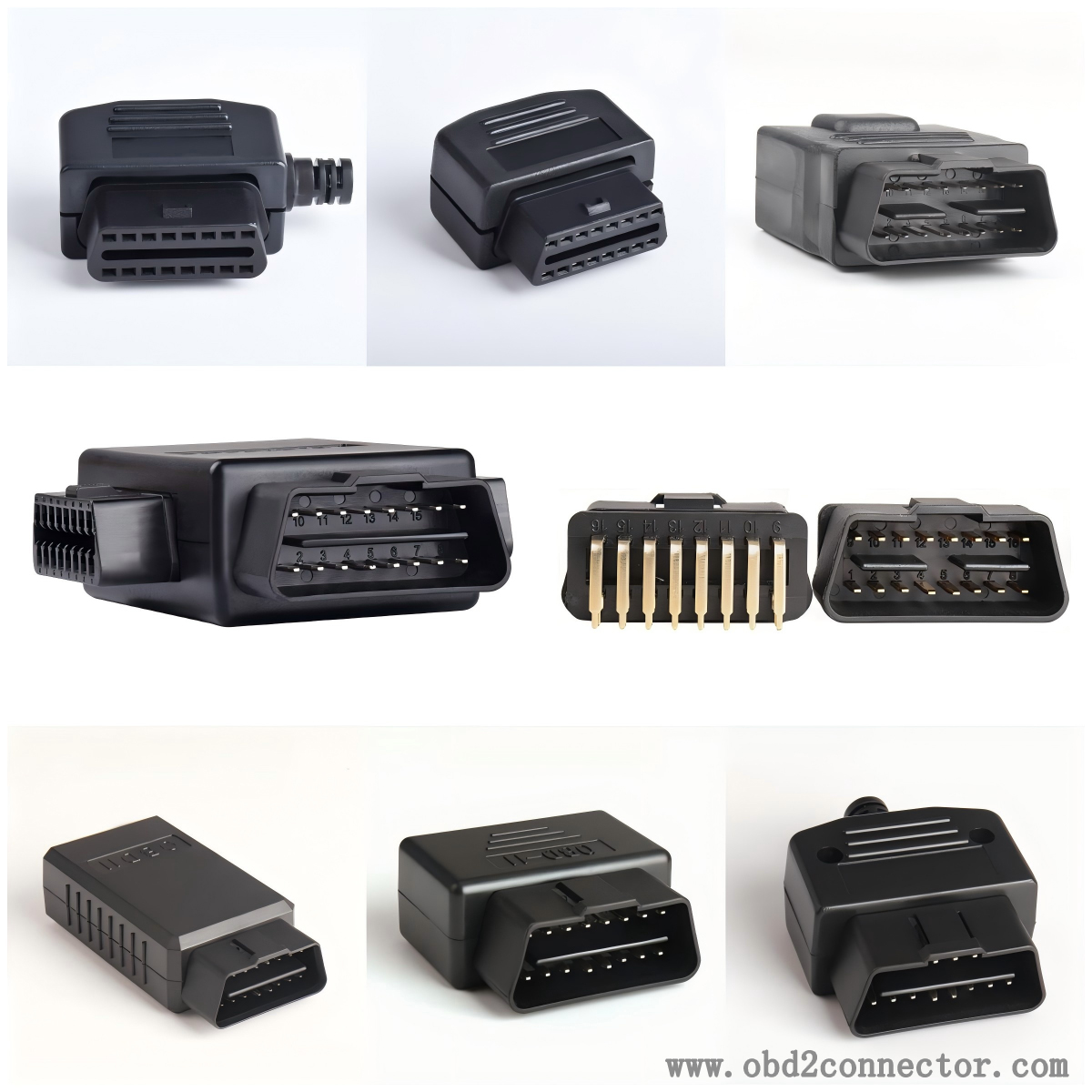Common functions and application scenarios of OBD2 connector
Read fault codes
When the vehicle dashboard lights up the fault light (such as the engine fault light), the specific fault code is obtained through the OBD2 device to determine the cause of the fault (such as sensor damage, circuit failure, etc.).
Clear fault codes
If the fault has been eliminated after repair, the fault code can be cleared through the device and the fault light can be turned off.
Attention: Clearing the code without resolving the actual fault may lead to the recurrence of the fault and even mask serious issues.
Real time monitoring of vehicle status
Monitoring engine parameters (such as idle speed, intake temperature), transmission status, emission system data, etc., suitable for vehicle maintenance or performance debugging.

Data recording and analysis
Some apps support recording driving data (such as fuel consumption curve, number of rapid accelerations) to help optimize driving habits or troubleshoot hidden faults.
Flashing vehicle configuration
Advanced devices can modify vehicle hidden functions (such as activating automatic locking and disabling start stop systems), but caution should be exercised to avoid affecting warranty or system stability.